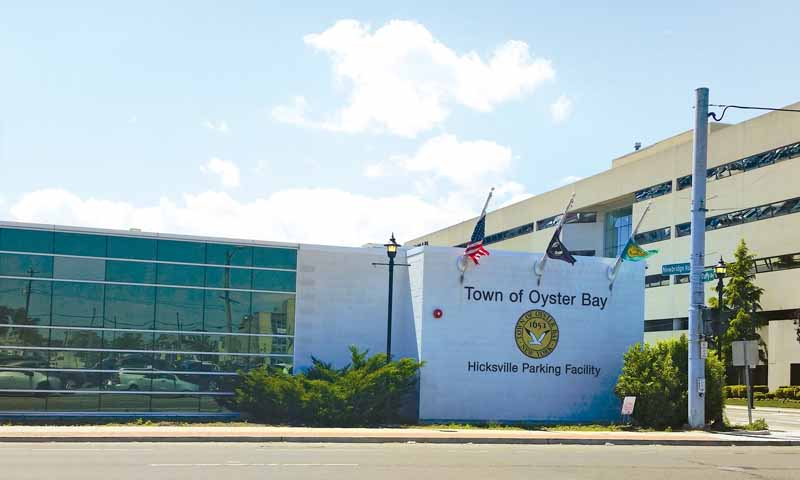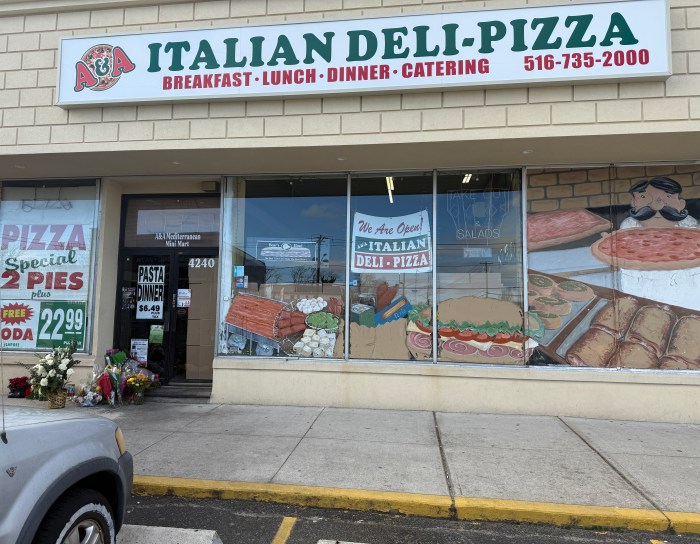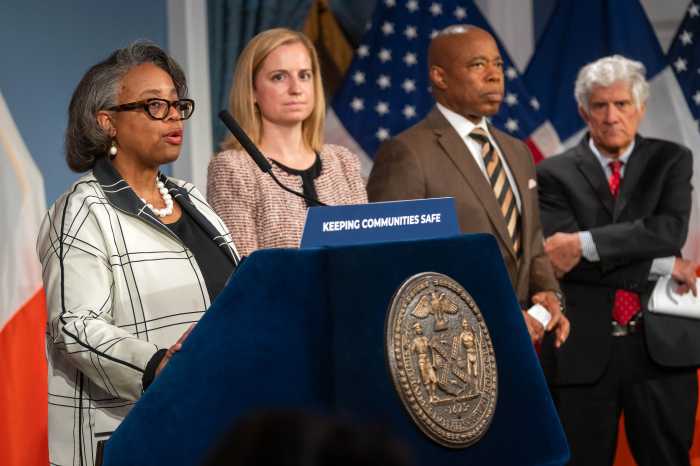
A reasonable fee increase—or a tax by another name?
A resolution that had been set aside at the Jan. 9 Town of Oyster Bay Town Board meeting was taken up again on Jan. 23. It would have upped the fee on the 40,000 yearly parking permits the town issues to residents of unincorporated areas from $10 to $100—or 900 percent.
Most villages served by the railroad have their own commuter and business district parking. Thanks to home rule, they can charge their own fees.
Ultimately, the board voted to again table a discussion (and presumably, a decision) until a later date.
The resolution originated from Department of Highways Deputy Commissioner John Bishop and stated that the increase was necessary “due to the increased costs of maintaining and improving the town’s parking facilities.”
The fee had not been raised since 1998, and revenues from an increase had not been anticipated in the adopted 2018 budget.
When quizzed by Councilwoman Michele Johnson how he had arrived at the figure, Bishop responded that his department researched fees in other municipalities, and found that Oyster Bay had the lowest such rate.
“Considering what other townships are charging, [the increase] seemed feasible,” he concluded.
Councilman Tony Macagnone was the most vocal opponent of the fee raise, arguing that not enough commuters—the residents most likely to use the permit on a daily basis—had weighed in.
Lisa Reinhardt of Hicksville thought the increase “was a huge jump.” She was also worried about the safety of the Hicksville Parking Facility, so Supervisor Joseph Saladino called on Department of Public Works Commissioner Richard Lenz to reassure her.
Asked by Councilman Lou Imbroto what she thought a reasonable fee would be, Reinhardt replied that she would not mind paying $50 “if I knew that the money was going to go toward the garage and not to another bucket of something else.”
Saladino also believed that $100 was too much, but pointed out that in 1998, taxpayers paid 69 percent of the cost of maintaining the town’s parking lots. In 2018, this rose to 85 percent.
“Part of the motivation for changing this is…to shift some of the burden in a fair and balanced manner to the people who utilize the station,” the supervisor said.
Macagnone wanted to know if any increase would go to a dedicated fund to maintain the parking lots and the garage—and that alone.
“That’s one of the options,” Saladino replied.
Bishop said that would be the case, and Macagnone emphasized that residents had reached out to him to make sure of this.
“They understand that the fee has to go up,” Macagnone said. “It’s the best bargain on Long Island [to park for $10 per year] providing you get a space.”
“Because of the $10 fee, some people get them for three or four cars,” Lenz said. “Maybe [going forward] they’ll only have it on the one that they take to the garage.”
Bishop said annual maintenance of the parking lots costs the town from $3-4 million.
“It would cost more than $5 million just to repave all the lots alone, not to mention the striping, the signage or the light fixtures that need to be updated to LED,” Bishop said.
Kevin McKenna of Syosset thought the fee should not be raised “until you have the [right number of] parking spaces. You have a problem in Hicksville as it is, and it’s going to get worse as you bring in more apartments. If you want to eliminate the parking problem, you need to find a way to limit who parks in Hicksville…and allocate the permits by parking lot.”
Bob Freier of Woodbury likened the proposed increase to the management of Nassau County by former executive Ed Mangano, “who boasted that he was holding the line on taxes, but was instead raising fees.”
Freier called the lack of parking the town’s major quality of life issue and also agreed with Macagnone that more public input was needed. He admitted that the fee should be phased in gradually, concluding, “I think people would be happy to pay more money if they were assured a spot.”
“That’s one of our priorities,” responded Saladino. “And we’re looking into ways to provide more capacity.”
Paul Molinari of Hicksville grew up in the ’50s and listed all the things one could get with a nickel then.
“What does a nickel get you in Oyster Bay [today]? The honor of seeking a parking space,” Molinari said, when accounting for a 220-day work year.
He noted that his daughter spends more than $400/year in Westchester on metered parking, “and here we are arguing over whether to raise it to $50—which is less than a quarter per day…I say it [the increase] has to be done.”
In the ensuing board discussion, various numbers were bandied about in an effort to reach consensus on a modified resolution. Only Macagnone remained opposed to voting that night.
“I don’t think we’ve heard from the public,” he asserted. ‘I don’t think we know where the money is going or how much we’re going to get from the [fee increase].”
He added, “We already budgeted [the fee] for 2018 at $10. To me this is another tax.”
After more criticism from several speakers, Councilman Joe Muscarella made a motion to table the resolution, which Macagnone quickly seconded.
The motion passed unanimously, though Imbroto, Johnson and Councilman Thomas Hand were reluctant “ayes.”
Gender Pay Equality
Thanks to a personnel resolution passed Jan. 9, “women will earn the same pay as men do for the same jobs,” Saladino pronounced at the meeting. “And we will be correcting that and recognizing and respecting everyone in government, especially all of our women in administrative positions and positions throughout.”
In a statement to Anton Media Group, Councilwoman Alesia said, “The new administration conducted an analysis of non-unionized employee compensation, which revealed that full-time female workers were historically paid only a fraction of their male counterparts. It’s simply unacceptable for any government or business to pay a woman less than a man for comparable work. I was proud to join with the supervisor in taking immediate action to correct gender pay inequities in the Town of Oyster Bay.”



































